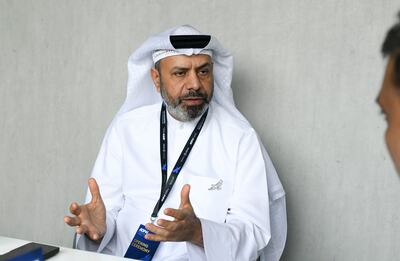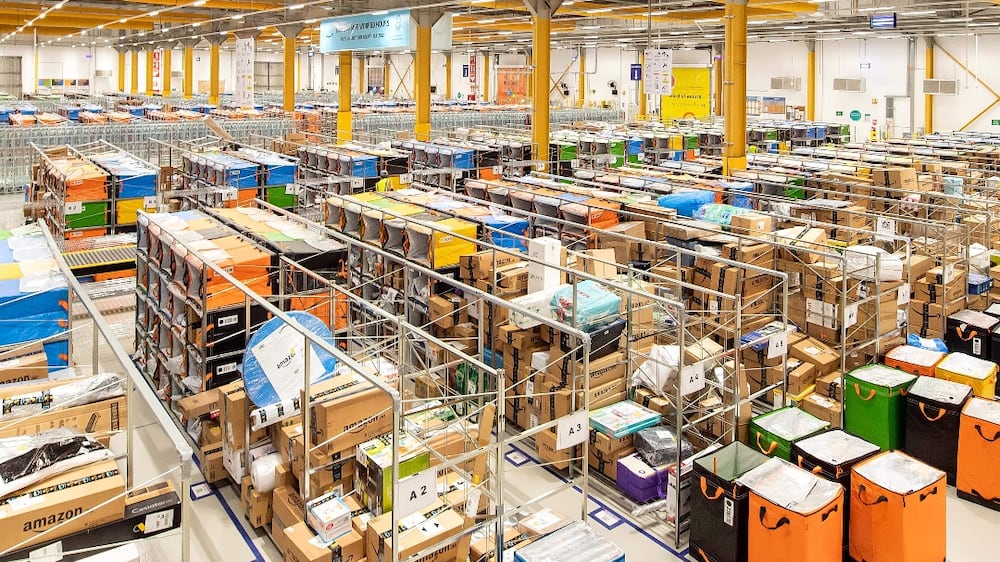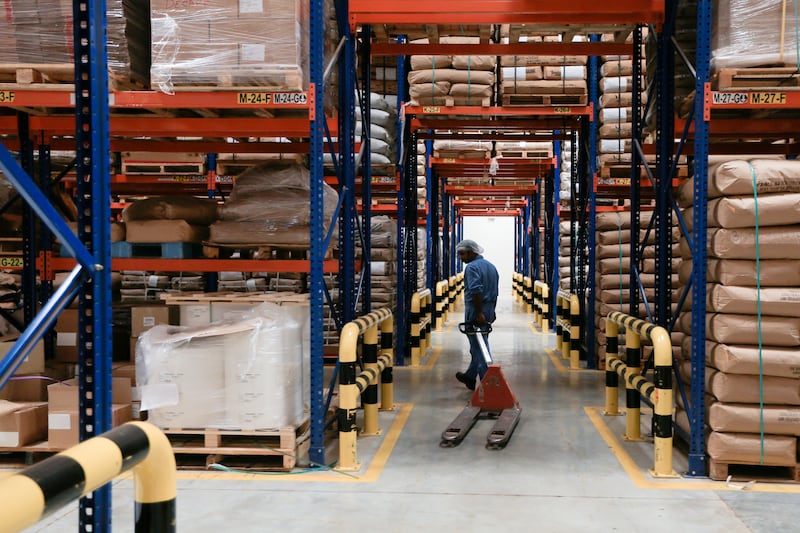The demand for warehouses has been increasing in the UAE and Saudi Arabia as a result of an increase in e-commerce and local economic diversification strategies, leading to a surge in investments in the sector.
Bahrain-based alternative asset manager Arcapita aims to boost its logistics portfolio in the Arab world's two largest economies to $2 billion in the next two to three years, from $1 billion currently, according to its chief executive.
The company owns logistics assets worth $500 million in Dubai and another $500 million in Saudi Arabia and aims to double the total assets value by 2025, Atif Abdulmalik told The National.
Arcapita is boosting investments “due to growth in these economies, and e-commerce is a key driver of that”, Mr Abdulmalik said.

The e-commerce market in the GCC region continues to grow as more people choose to shop online, in turn boosting demand for warehouses.
The UAE's e-commerce market is expected to reach $9.2 billion in 2026, up nearly 92 per cent from 2021, the Dubai Chamber of Commerce said last year.
An influx of international investments is also pushing up demand for new warehouses, according to the latest report from Knight Frank.
“Demand is outstripping supply and occupiers are faced with the prospect of leasing more secondary stock [in Dubai], while others are gravitating towards locations in Abu Dhabi, which is benefiting from spillover demand,” the report said.
Dubai recorded 9.9 million square feet of new warehouse requirements in the first nine months of this year. The logistics sector dominated demand, accounting for 44 per cent of new requirements in Dubai, followed by manufacturing and industry, and the technology sectors.
Strong demand for warehouses
“Demand has been strong this year and we have worked with several new market entrants from the Asia Pacific, CIS [Commonwealth of Independent States] countries, Turkey and India,” said Maxim Talmatchi, associate partner and co-head of industrial and logistics at Knight Frank.
“Additionally, existing industrial occupiers have also been busy expanding their footprints in Dubai.”
The shortage of warehouses, combined with Dubai's ambitious D33 agenda that aims to catapult it into the world's top cities by economic strength by 2033, is expected to push rents higher, according to the report.
Saudi Arabia, the Arab world's largest economy, plans to develop 59 logistics centres across the kingdom as part of its broader National Transport and Logistics Strategy, as it aims to become a global logistics hub as part of its diversification plans.
The demand for warehouse space in the UAE and Saudi Arabia has seen “significant growth in recent years”, said Michael Fenton, director of industrial and logistics at Savills, and Swapnil Pillai, associate director of research at the company.
“The rapid expansion of online shopping, especially during the pandemic, has significantly increased the need for storage and distribution centres,” they said.
“Both countries, with their growing internet penetration and tech-savvy populations, have seen a surge in e-commerce activities, necessitating larger and more sophisticated warehousing solutions.”
Amazon opens its largest delivery station in Abu Dhabi

The UAE and Saudi Arabia are also investing in the food production and processing industries as they focus on boosting food security and reducing reliance on imports.
“This has led to an increased need for specialised warehousing facilities, like cold storages, to store perishable goods,” Mr Fenton and Mr Pillai said.
The demand for industrial space in the two Arab states is expected to continue to grow at a steady pace, although at a reduced rate than in the years immediately following the pandemic on the back of “strong population growth and the completion of major infrastructure projects”, they added.
Arcapita, which operates in private equity and real estate, has completed more than 100 transactions in the past 25 years worth more than $30 billion. Its investments in real estate are valued at about $13 billion.
“We have been aggregating sizeable platforms in the GCC, US, and more recently the UK,” Mr Abdulmalik said. “We have also been selectively investing in sectors that we have a strong conviction in and where our team has a strong track record.”
In 2019, it also acquired a portfolio of warehousing units in Dubai Investments Park, according to its website.
Arcapita is expected to continue to focus on industrial and logistics, business services and rental housing as part of its investment strategy, Mr Abdulmalik said.







